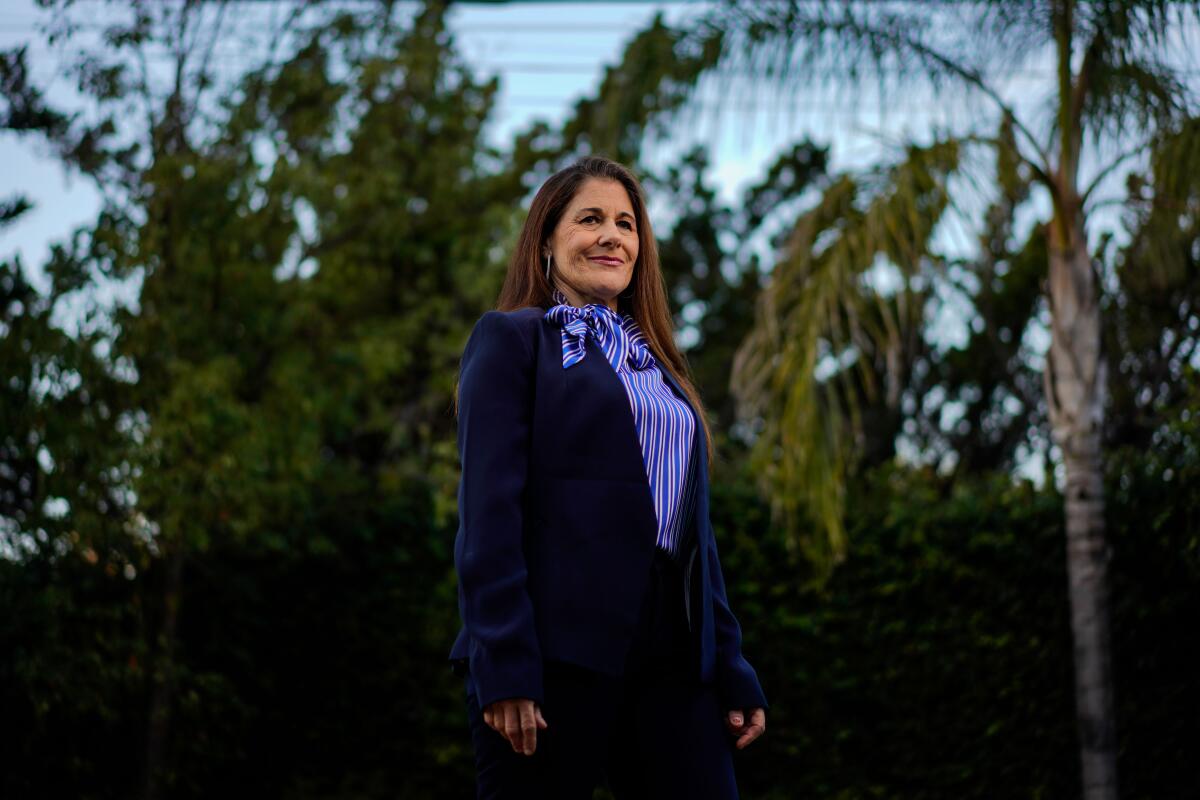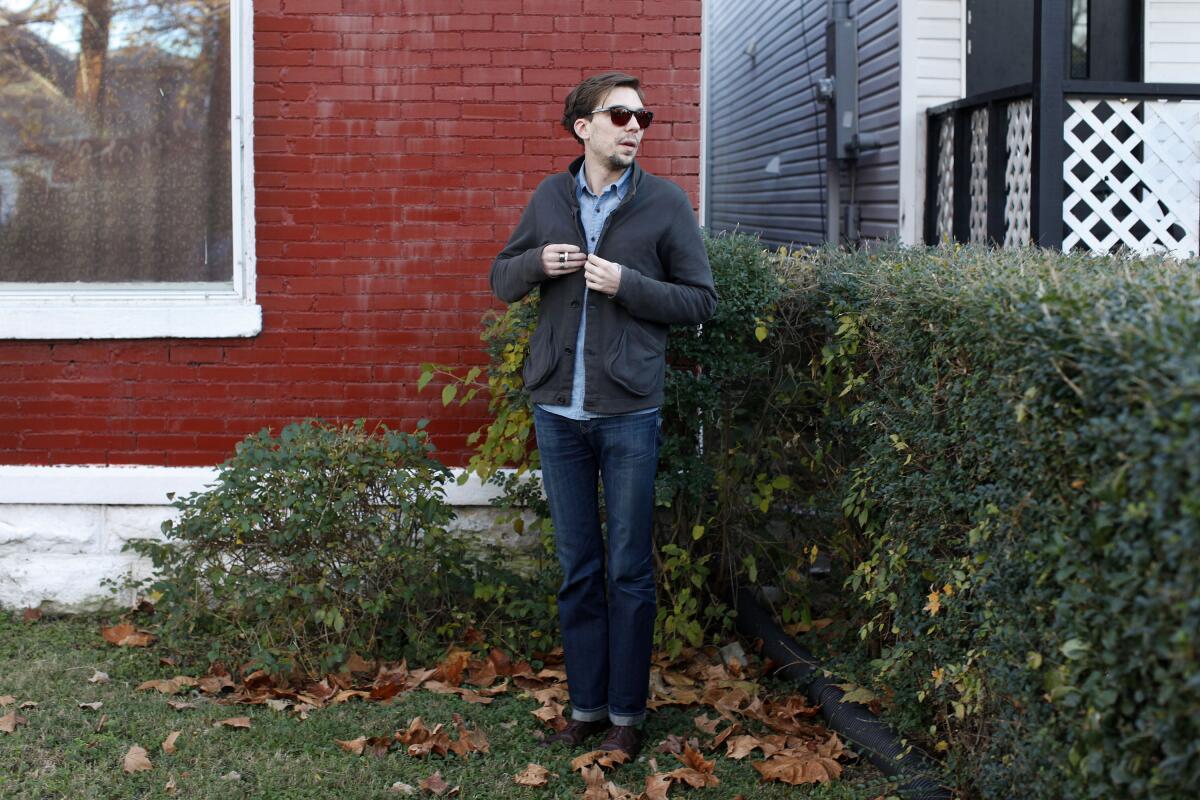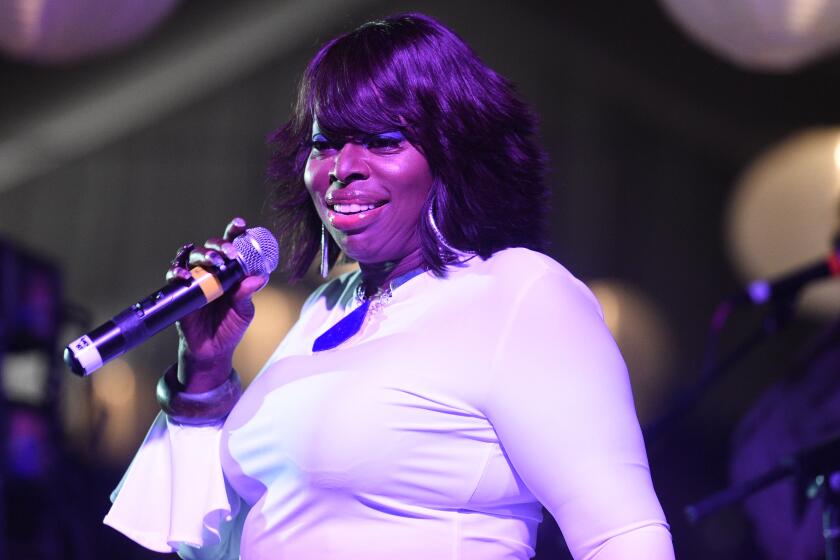COVID-19 wreaked havoc with their lives. Now, musicians battle another epidemic: addiction
- Share via
One of the last songs the 30-year-old country singer Cady Groves ever recorded was about being alone and not sure where to look for hope.
“Got a million scars, don’t know where to start / Can anybody hear me now?,” she sings on the wounded but resilient single “Bless My Heart.” “The crazy nights, the stupid fights and the givin’ up …. Every time I played the game and I got cheated / Every time I heard a lie and I believed it.”
Groves had a difficult upbringing, losing two older brothers to overdoses in her teens and 20s. She’d found pop-country success in the 2010s (Blake Shelton appeared in her video for “This Little Girl”), and after she lost her deal with RCA, she won an independent fanbase for her tender, forthright songwriting about loss and longing.
“Cady was this free spirit who wore her heart on her sleeve. She was one of those people who would do anything for you within 15 minutes of meeting you,” said Camus Celli, head of her label, Vel Records. “I think with all artists, that’s one of the hardest things to maintain without a buffer. You’re susceptible to so many things.”

COVID-19 shutdowns were brutal for many musicians, with tours canceled, income dwindling and their families and communities adrift. Celli said Groves, riding out the pandemic in her suburban Nashville home, took it especially hard. She’d struggled with eating disorders and had received aid from MusiCares. As the stress and isolation of the pandemic took hold, they resurfaced.
“I’ve had to REALLY just be alone with myself and my thoughts and fears and anxiety in my bedroom without anybody here in Nashville. Some days my mental health is AWFUL. I feel completely alone and scared and far from everyone I love and all I can do is keep myself busy and push through,” she wrote on Instagram in April.
Groves died May 2, and while the coroner’s report attributed her death to chronic ethanol abuse, Celli said present circumstances played a role as well.
“She weighed 81 pounds when she died,” Celli said. “Her body just gave up. In the middle of COVID-19, no one had seen her for months. She was always like ‘Everything’s great,’ but COVID-19 really stripped away a lot of the structure artists depend on.
“As an artist, the last thing that you want for people to see is that it’s not going well and things are falling apart.”
For musicians, the collapse of the live industry for potentially two years due to the pandemic has left many feeling directionless, broke and scared. Unsurprisingly, some have turned to substances or addictions to feel better — or just to feel less.
“Sobriety has definitely been more challenging,” said Jodi Milstein, a Sherman Oaks therapist who specializes in addiction treatment in music and the entertainment industry. “Stress, financial worries, relationship troubles: There are so many different stressors with COVID-19. The whole live music industry has been at a halt for eight months, and some artists are concerned that their window for success won’t stay open.”
One of the many consequences of COVID-19 is a spike in substance abuse nationwide. The National Institutes of Health said that during the pandemic, “among the hardest hit are individuals struggling with substance use disorders.”
In a new Centers for Disease Control and Prevention report released this month, there were 81,000 drug overdose deaths in the United States over the 12 months ending in May 2020 — the highest ever recorded in a 12-month period. Opioid deaths were up 38%, and cocaine deaths were up 27%. As millions of Americans lost jobs during the pandemic-related recession, many lost health insurance or, for musicians without full-time employment, the means to pay for rehab or therapy as well (though the COVID-19 stimulus package passed this week includes $4.25 billion for mental health services).
“The disruption to daily life due to the COVID-19 pandemic has hit those with substance use disorder hard,” said CDC Director Dr. Robert Redfield in the study. “As we continue the fight to end this pandemic, it’s important to not lose sight of different groups being affected in other ways. We need to take care of people suffering from unintended consequences.”
The Irish singer Sinead O’Connor said that she’s taking all of 2021 off from music to “go into a one-year trauma and addiction treatment program because I had a very traumatic six years and this year was the end of it but now recovery starts.”
Others couldn’t find help in time. The 25-year-old Philadelphia rapper Chynna, a collaborator with ASAP Mob, died in April of an opioid overdose. Nashville singer-songwriter Justin Townes Earle, 38, died in August of a “probable drug overdose,” according to local police. Both were candid in interviews about their struggles with addictions (and plans for sobriety) before the pandemic. (Earle’s father, Steve Earle, will release an album, “J.T.,” covering his son’s songs, next month.)

Geoff Rickly, the singer for the rock band Thursday, hosts a podcast, “Dark Blue,” about mental health in the music business. Rickly, 41, struggled with heroin addiction for years. He’s three years sober now and attends regular support-group meetings online. During the pandemic, when many musicians lack work or an in-person sober community, he’s worried about friends isolating and backsliding.
“The obstacle of COVID-19 is all this unstructured time,” he said. “This much isolation can be really tough for most musicians. I have friends who were very productive at the beginning of lockdown, but now they’re wondering why they should keep being productive. Clubs are closed, there’s no Spotify money and these ripple effects are showing. There’s a lot of fear,” he said.
When Keith signed to a major label in the first weeks of 2020, he couldn’t wait to get writing. The Silver Lake singer-songwriter (who asked to use a Rolling Stones-related pseudonym to protect his privacy) is in his early 30s, and just before the pandemic, he’d inked a deal with a major-label imprint for close to a six-figure advance, after years in clubs refining his R&B-influenced rock.
He’d booked studio sessions with A-list producers, had a steady girlfriend thrilled at his success and a part-time service-industry job that could tide him over until the tour. He’d also just kicked a lingering cocaine habit.
But once COVID-19 struck, those recording sessions and tour plans evaporated. His day job went under, and while he could live off his advance for a while, he was bored, lonely and worried about the future.
Keith moved into his girlfriend’s house in March to ride out the pandemic, but “I didn’t have anything to do all day but play guitar,” he said. “I started cracking the first beer of the day at 5 p.m., then 4, then 3, then 2. Soon I was spiking my coffee with Hennessy in the morning.”
After a restless, isolated summer, the itch returned. An old party pal said she was having friends over one night in the fall. Keith hadn’t seen anyone for months. He’d intended to hold the line at a backyard kickback. But someone pulled out a bag of coke.
“The reason I’d stopped hanging out with them was because of drugs, but I was really depressed,” Keith said. “Cocaine is like the lover who texts ‘U up?’ and any time, day or night, you know you’re going to answer. Sooner or later we were chopping up lines, and I ordered two more eight balls, and we did it all.”
Keith went home at 11 a.m. the next day. His furious girlfriend promptly dumped him. “I’d put her and her family at risk for COVID. I get it,” he said. He frantically wrote to friends and family to find somewhere else to isolate.
Music felt useless with no prospects for gigs. Nine months after COVID-19 arrived, his major-label advance now felt less like a gift to further his art and more like a loan that he’d never be able to repay.
“I know I could get dropped from the label, and I have no other skill set other than being a musician,” he said. “How am I going to be able to pay this back now?”

Even for artists and industry pros who hadn’t previously wrestled with substance abuse, the financial devastation of the pandemic has introduced fresh panic. The issues the industry faces — closed venues, tours postponed, meager relief for gig workers — play into anxieties that can kickstart substance abuse.
“There’s a sense of feeling out of control, which contributes to anxiety,” Milstein said. “We all thought [the pandemic] might clear up by summer, and now we don’t know if summer 2021 will happen for tours. Only a small percentage of artists can survive what’s going on. There’s nobody looking out for them.”
That’s been disorienting for many musicians and DJs, said Mikey Lion, the cofounder of the popular SoCal house and techno DJ crew Desert Hearts.
After the pandemic hit, he moved from L.A. back to his hometown of San Diego, and he says many of his DJ peers have struggled in isolation with few paying gigs.
“Some of us are doing better than others,” he said. “This is definitely something artists are talking about. You can feel optimistic and disciplined about mental health and sobriety one day and then the wheels will fall off.”
Some kept chasing the sensation of hedonistic nights at home.
“A lot of people end up partying in their own home and getting lost in drugs or drinking,” Lion said. “Everyone’s completely worried about their finances. It’s easy to get lost in despair.”
Zack Borer is an L.A.-based psychotherapist who specializes in treating musicians. He cofounded Backline, a group connecting struggling musicians with mental health services.
He’s certainly seen clients wrestling with new substance abuse issues, he said. But other patients have benefited from the change of scenery, with time to reflect and access to a global online support network.
“I have clients who have taken hard steps that they’d avoided for years with their life on the road,” Borer said. “For sure, people are struggling with the loss of an in-person recovery community. But at the same time, Zoom has allowed people to enter into this space with less vulnerability. You can go to a meeting anywhere in the world, shut your camera off and have anonymity. If you’re skeptical or ashamed or fearful, walking into a room and raising your hand is difficult. Virtual spaces can be less pressure.”
Rickly said that during the pandemic, he goes to those types of meetings every week, and they’ve helped him through any latent pangs of addiction. “The most effective thing I’ve seen is to reassure people that if they find themselves ready for help, there’s someone there to answer them,” Rickly said.
A few months after his relapse, Keith sat on the back porch of his Silver Lake apartment and, while still worried about his career during the pandemic, felt better about staying clean. He’s been writing new music at home and desperately wants to be in good shape for his first headline tour — whenever that comes next year.
“Partying never helped me deal with all the trauma in my past,” he said. “But music did.”
More to Read
The biggest entertainment stories
Get our big stories about Hollywood, film, television, music, arts, culture and more right in your inbox as soon as they publish.
You may occasionally receive promotional content from the Los Angeles Times.











